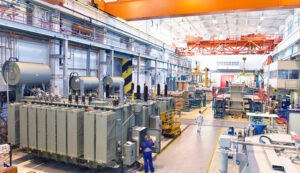Almost seventy per cent of manufacturing decision makers agree that their sustainability strategy has been restricted due to cost pressures.
The stalling of progress in green initiatives is also revealed by 72% of respondents saying that less than 50% of the materials used in the manufacturing process are sustainable, while an even higher percentage state that less than 50% is currently powered by renewable energy.
There is also room for improvement when it comes to progress in sustainable initiatives, with less than half of organisations focusing on waste reduction, improving efficiency and a reduction in power usage, with the latter most likely driven by rising energy costs. This is despite confidence among decision makers that their business will play a role in the global drive for net zero carbon emissions.
Rising economic pressure will likely extend beyond impacting sustainability and also push organisations towards a reshoring strategy. In fact, almost four-in-ten are planning to bring their operations back to their original country, with increased costs associated with maintaining operations across several countries and transporting goods across long distances likely to be playing a role.
While only 12% currently cite a reduction in needed transportation as a sustainability strategy, this will likely increase as reshoring gains in popularity. The need to reshore will also escalate as decision makers identify supply chain issues and the challenging economic environment as the biggest challenges.
However, organisations need to ensure that sustainability stays front-of-mind, as decision makers state that employees are holding greater power in driving sustainability strategies.
“The challenging economic climate is presenting a blocker to green strategies for many manufacturers. However, decision makers can’t put sustainability on the backburner, with net zero targets and employee demand dictating its importance. To confidently move forward, technology such as simulation software can allow organisations to reduce waste, optimise floor layouts and enable communication of plans to colleagues remotely, bringing down emissions,” said Mikko Urho, CEO, at Visual Components, who commissioned the research.
Read more:
Economic climate holding back sustainability strategy for seven-in-ten manufacturers
























